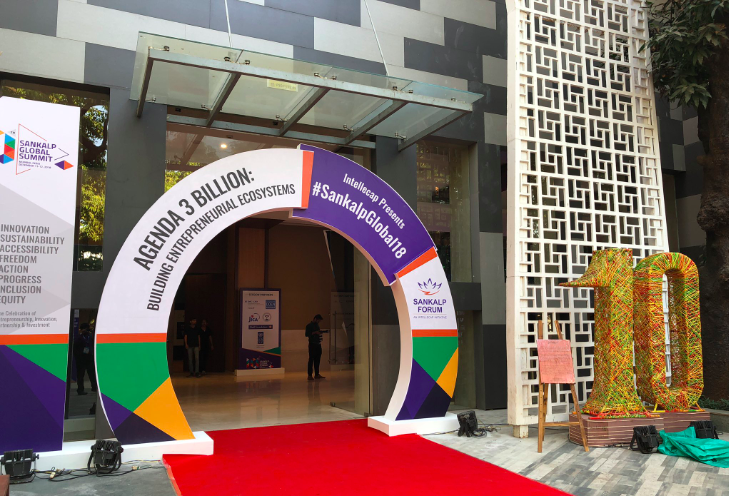India, soon to be the most populous country in the world, also has the most people without access to safe water, and hundreds of millions of people without toilets, electricity, or bank accounts. “In the next five decades we will see more urbanization than any country has ever seen,” said Amitabh Kant of the National Institution for Transforming India, at this week’s 10th Annual Sankalp Global Summit in Mumbai. If India can tackle the social issues of urbanization, Kant said, “then we are finding solutions to the seven billion people of the world.”
Sankalp, produced by the Aavishkaar-Intellecap Group, convened 800 impact entrepreneurs, investors and others around the theme of building an entrepreneurial ecosystem that supports economic inclusion and opportunity for the world’s three billion emerging consumers. Among the highlights:
- Sankalp Awards. This year’s winners include YCook, a food company that raised $5 million to support productivity and sustainability practices of farmers in its supply chain; Frontier Markets, a clean energy distribution company; ftcash, a digital payments and lending company; and Simulanis, an education and workforce training startup that recently raised funding from Village Capital and CBA Capital. The pitch competition has helped 30 social entrepreneurs raise $120 million in venture funding.
- Large is beautiful, too. Startups like Farm Taaza, FarmFolks, and Doodhwala have raised financing to improve agriculture supply chains and farmers’ access to markets. Origo and Samunnati are improving smallholder farmers’ access to financing. Ventures like AgNext and Stellapps are driving data and digital integration in the sector. India’s agriculture sector, which provides livelihoods for more than half of the population, is ripe for disruption by startups. Improving farmers’ productivity and income requires buy-in from large agribusinesses as well, says Omnivore Capital’s Mark Kahn. “It’s difficult for startups to reach small, marginal farmers directly. Large businesses are the channel to reach farmers.”
- Credit through a gender lens. Women in India face a $287 billion credit gap. Seedfund Advisors’ Paula Mariwala said women’s dedication and willingness to take risks should spur investors and financial institutions to close that gap. “This is something that we can bank on.”











